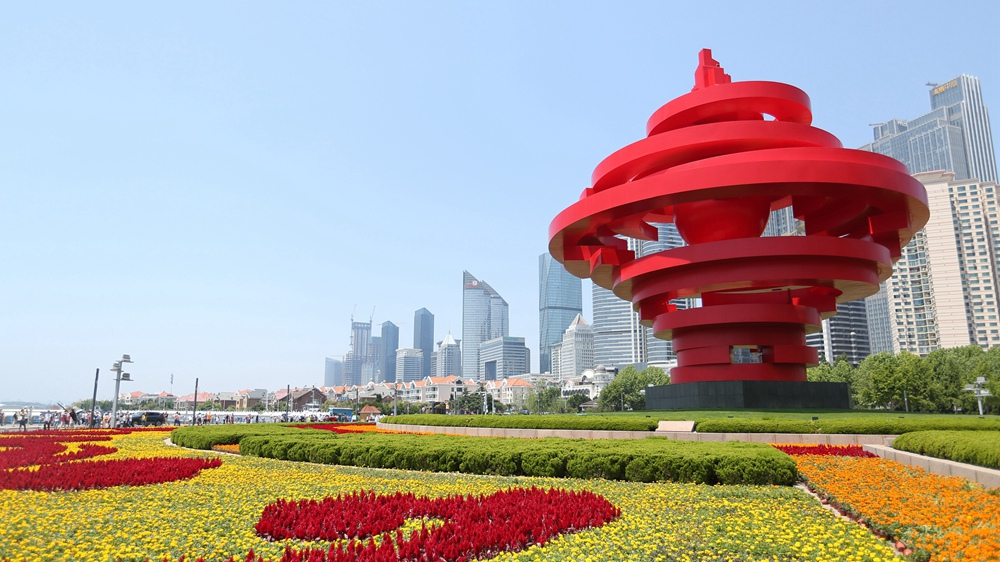The issuing of the Qingdao Declaration marked the end of a fruitful Shanghai Cooperation Organization (SCO) summit. A series of landmark achievements has been made: The proposal put forward by Chinese President Xi Jinping to build an SCO community with a shared future was welcomed by leaders of all participating countries; China will set up a 30-billion-yuan ($4.7 billion) equivalent special lending facility within the framework of the Inter-Bank Consortium of the SCO; India and Pakistan attended the summit as full members for the first time. These developments shored up the significance of the Qingdao summit.

Photo: VCG
Why did the G7 summit end in disarray, with US President Trump calling Canadian Prime Minister Trudeau "dishonest and weak" on Twitter while the SCO summit was full of enthusiasm and ambition? The key lies in that the Shanghai Spirit, featuring mutual trust, mutual benefit, equality, consultation, respect for cultural diversity and pursuit of common development, echoes the theme of the era, in which unilateralism can hardly prevail.
International public opinion dominated by the West was skeptical about the SCO in the past. However, during the Qingdao summit, serious analysis and positive evaluation of the SCO have emerged. On the other hand, the G7 summit drew extensive criticism. This is an important change.
Shanghai Spirit is showing strong vigor as a new principle of international relations. It doesn't follow geopolitical competition, but stands for human society's new thinking regarding global governance in the 21st century. World diversity is such that it is unrealistic to standardize the 200-plus countries and regions under one political and value system. Shanghai Spirit offers a feasible solution to support globalization.
Bigotry of a few Western countries has resulted in emerging countries in Eurasia to explore a new, adaptable type of international cooperation. This may be a factor in SCO's recent and future continuous growth. The SCO has been established for only 17 years, but its member states have formed a consensus on the principles of the organization, course for expansion, and built up a collective confidence and pride. The organization has also garnered more positive external evaluation. Enabling it to exert greater influence on the region and the world will be a tremendous contribution of all member states made to the global governance.
Can big and small countries cooperate on an equal footing? Can countries with different value systems co-exist under a stable framework? Can countries at various political and economic development stages work out constructive solutions together? These are imperative questions for contemporary international relations.
The SCO is seeking answers to these questions. Surprising to many, the answers it has offered are positive and encouraging. It is inclusive to interests of all member states.
It's fair to say major countries such as China and Russia have exerted a constructive influence on the organization. The SCO serves common interests of member states instead of being a political tool of a few countries. It doesn't target any other power but is an open international cooperation group that should be supported by the global community. The outside world should encourage exploration carried out by this platform.


